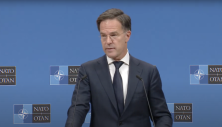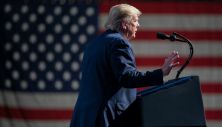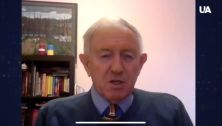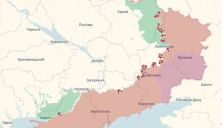Senior officials in Trump’s administration have recently begun to acknowledge that the U.S. may not achieve a peace agreement on Ukraine in the coming months and are developing new pressure strategies on both Kyiv and Moscow.
This was learned by the Reuters agency on condition of anonymity from two U.S. officials.
Trump and his advisers aimed to achieve a full ceasefire by April or May and hoped to secure a long-term peace deal in the following months. However, none of these agreements appear close, sources told the agency.
For several weeks, senior U.S. officials have been privately complaining about how Kyiv is handling negotiations, allegedly resisting agreements on mineral extraction and moving forward with peace talks. However, in recent days, according to sources, officials have become increasingly frustrated with Moscow.
During a series of meetings and calls over the weekend, officials at the White House and State Department admitted that Russian leader Vladimir Putin is actively resisting Washington’s attempts to secure a long-term peace deal. They discussed what economic or diplomatic sanctions, if any, could push Russia toward an agreement, sources said.
The growing anger toward Russia, including from President Trump himself, marks a shift in internal discussions within the U.S. administration regarding Moscow’s willingness to negotiate.
For weeks, Trump has stated that he trusts the Russian leader and believes in Putin’s commitment to peace. But in recent days, the White House has become more cautious about Putin’s intentions, sources noted. Meanwhile, Trump continues to publicly express his belief that Putin wants to end the war.
It remains unclear what specific plans the administration has for pressuring Moscow, but one senior U.S. official said the White House is still considering additional tariff and sanctions measures that could be imposed on Russia.
On Sunday, Trump said in an interview with NBC News that he was “outraged” after Putin questioned the legitimacy of Volodymyr Zelenskyy and suggested that the U.S. might introduce additional tariffs of 25-50% on buyers of Russian oil.
At a meeting with Baltic foreign ministers last week, U.S. Secretary of State Marco Rubio told his colleagues that peace in Ukraine is not guaranteed and indicated that the U.S. is still far from reaching an agreement.
Read also: Trump believes that Putin is stalling ceasefire negotiations and threatens sanctions against Russia’s shadow fleet













